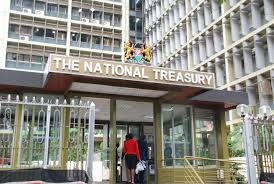
The National Treasury is now asking Parliament to repeal tax exemptions clauses that have led to a Sh6 billion shortfall in revenue collection by the Kenya Revenue Authority (KRA).
In proposals to the National Assembly’s Departmental Committee on Finance and National Planning, treasury says that the law failed to adequately address the cutoff date for discontinuation of the exceptions.
This, the exchequer argues, has seen the taxman continues to lose revenue even beyond the tax exemption deadline date.
Treasury’s Senior Director for Macro and Fiscal Affairs, Joseph Ngugi, while delivering the exchequers input to the Value Added Tax (Amendment) Bill No. 11 of 2025, said that the exemptions, originally meant to incentivize investments above Sh2 billion, have instead become a fiscal liability.
Ngugi told lawmakers that ambiguities in the current legal framework had created room for tax exemptions to continue beyond the intended cutoff of December 24, 2024, despite amendments to curb the trend.
"The intention of the Act was to stop further exemptions from December 27, 2024, onwards. However, companies that received exemptions before this date continued to enjoy them, and now we are being asked how to process these exemptions even after the law changed," said Ngugi.
According to Ngugi, the Treasury’s position is that all previously granted exemptions should be honored only up to December 25, 2025, as a transitional phase, but that no new exemptions should be issued.
The committee’s sessional chair David Mboni expressed concern over the legal and fiscal implications of ‘retroactive amendments,’ with questions raised on whether such moves contradict the principle of non-retrospective application of tax laws.
Retroactive Tax Changes are modifications in tax laws or policies that apply to periods before the enactment or announcement of the changes.
In other words, these changes affect past transactions, income, or financial activities, rather than just future ones.
“Why are we creating laws to allow the government to retain money it has already collected instead of just stopping future exemptions?” asked Mboni, adding that there is a need for legal certainty in taxation.
The committee sessional chair, demanded transparency on which companies benefitted from the exemptions and how much investment these incentives had attracted.
“Give us a list of all the companies who were granted the exemptions, the investments they brought, and the tax foregone. We want this data by Monday,” the committee directed Treasury officials.
In response, Treasury confirmed that they would submit a detailed breakdown of the companies that received exemptions under the Sh2 billion investment threshold, the value of their projects, and the revenue impact. However, Ngugi emphasized that the Sh6 billion loss figure was annual and not cumulative.
Homabay Town MP Peter Kaluma was also wary of selective implementation, questioning why the law should cut off exemptions at December 27, 2024, and not from the actual enactment date.
“We want to understand the rationale behind that specific date. Why protect investments only up to that point?” he asked.
The committee argued that while incentives can attract investment, Kenya’s fiscal space is too constrained to continue sacrificing the revenue.
The Sh6 billion lost in exemptions, they noted, equals the Judiciary's annual budget and half of the budget for all constitutional commissions.
Ngugi maintained that the Treasury supports a phased removal of exemptions, focusing only on facilitating those previously granted, but maintained that no new tax breaks would be considered going forward.
“We are not proposing any new exemptions. We only want to finalize those that were granted before the law changed, and do so within a clear one-year transition period,” he said.
The
committee has given the Treasury until Monday 14, to submit a list of all
companies that benefited from exemptions, the value of investments attracted by
these exemptions. The total revenue lost due to the policy.











